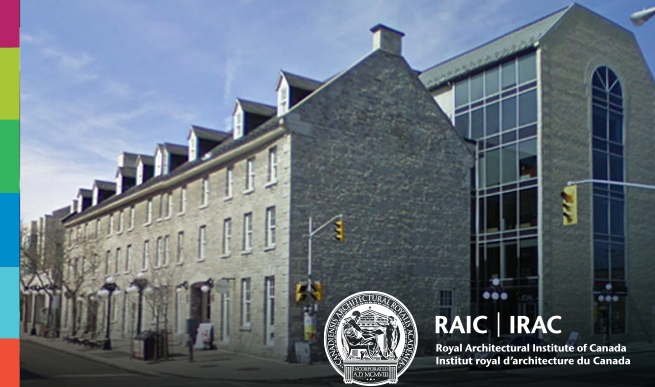
Engineering
| Location: | UK Other |
| Closing Date: | Saturday 30 September 2023 |
| Reference: | ENG1693 |
Multi-material metal 3D Printing for compact, lightweight heat exchangers for high power thermal management (2x Studentships)
Supervisors: Dr. Luke Parry, Dr. Vitor Marques (Industrial Supervisor)
About the Project
The project is to contribute to a major Ministry of Defence (MOD) research programme intended to develop generation after next technologies for applications in defence and security, and this project will be co-funded by Leonardo.
This project aims to design and manufacture heat exchangers for high power thermal management in defence applications, while leveraging on the latest computational techniques. Additive Manufacturing (AM) or 3D Printing of multiple metal materials using laser powder bed fusion (L-PBF) will be used offering new design freedoms to functionally grade (smoothly transition) between bulk material properties or produce hybrid materials that exploit combining unique properties from different materials enhancing thermal-mechanical performance of heat exchangers.
Such material combinations could be:
a) In-built surface coatings to enhance heat-transfer coefficient in heat-exchangers (HX)
b) Embedded anisotropic thermally conductive vias or materials
c) Thermal expansion controlled structures/metamaterials
d) Metastructures with programmable shape-morphing functionality
The main objectives of this project are:
- Development of multimaterial L-PBF Design guidelines to aid future transition of design into production
- Computational design and optimisation approaches for multimaterial metastructures
- Understanding of how different material combinations and their design into metastructures affect the thermo-mechanical performance and metallurgy
- Heat exchanger demonstrator with enhanced capability
The PhD candidates will take advantage of recently acquired leading-edge multi-beam L-PBF printer with multi-metal deposition only available at Nottingham’s Centre for Additive Manufacturing (CfAM). You will perform hands-on research in world-class laboratory facilities with leading experts in development of materials, techniques, and characterisation methods for functional 3D printing.
The plan is to recruit two PhD candidates to undertake this project and be part of a new MOD/EPSRC Energy Transfer Technology Skills and Training (S&T) Hub. The main aim of the S&T Hub is to train the next generation of leaders in energy transfer technologies relevant for defence and other related applications. The Hub is supported by MOD, Dstl, and UK companies working in the defence and security sector.
Each studentship funded by the Hub will have an industrial partner and have opportunities to work with and train alongside experts from industry. The Hub offers individual’s training for both a research and an industrial career path.
The students will be both based at the University of Nottingham but will be part of cohort of 12 PhD students across a number of UK institutions. The Skills and Training Hub will run online and face-to-face activities to facilitate cohort building and group learning exercises throughout the PhD programme. The duration of the PhD is 4 years, and the start date is 1st October 2023.
The PhD students will be physically located in Centre for Additive Manufacturing at the University of Nottingham.
The industrial partner, Leonardo, is a major international company operating in the Cyber Security, Defence and Security, Aeronautics and one of biggest suppliers of defence and security equipment to the UK MOD. Positioned across 8 UK sites, contributes £1.9bn to the UK Economy.
Leonardo will be actively involved providing the necessary support and guidance of the students. Throughout the programme, it is envisaged that the students will be in close communication with Leonardo Engineers and the UK AM working group, which will encompass technical presentations of the project progress and use of facilities where applicable. This will provide opportunities actively participate applying research into an industrial setting.
Eligibility
PhD Candidates must hold a minimum of an Upper Second Class UK Honours degree or international equivalent in a relevant science or engineering discipline. Candidates must be UK Nationals and be willing to apply for and able to obtain Baseline Personnel Security Standard (BPSS) clearance.
Before you apply
We strongly recommend that you contact the supervisor(s) for this project before you apply: informal enquires can be sent to luke.parry@nottingham.ac.uk
How to apply
Please send a copy of your covering letter, CV and academic transcripts to cfam@nottingham.ac.uk referring to the project title. Please note applications without academic transcripts will not be considered.
Equality, diversity and inclusion
The S&T Hub is committed to providing an inclusive environment in which diverse students can thrive. The Hub particularly encourages applications from women, disabled and Black, Asian and Minority Ethnic candidates, who are currently under-represented in the sector. We can also consider part time PhD students. We also encourage talented individuals from various backgrounds, with either an UG or MSc in a numerate subject and people with ambition and an interest in making a difference.
Funding Notes
This is a MOD/EPSRC Energy Transfer Technology Skills and Training Hub project. The duration of the PhD is 4 years. Funding will cover tuition fees and a stipend set at the UKRI rate (£18,622 in 2023/2024), and additional funds will be available for conference attendance and training, for students to travel to industrial partners and to do longer placements with the industrial partner. The funding is for home students and applicants must be UK Nationals.
Application closing date: 30 September 2023
Nottingham; United Kingdom; Additive Manufacturing; 3D Printing; Metallurgy; Energy Technologies; Aerospace Engineering; Mechanical Engineering; Manufacturing Engineering
![Postdoctoral and Research Opportunities at McGill University [CA]](https://scholaridea.com/wp-content/uploads/2020/06/mcgill-university-30-may-2019-768x402.jpg)

